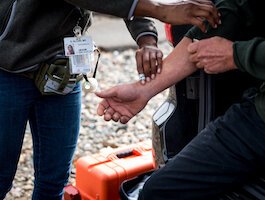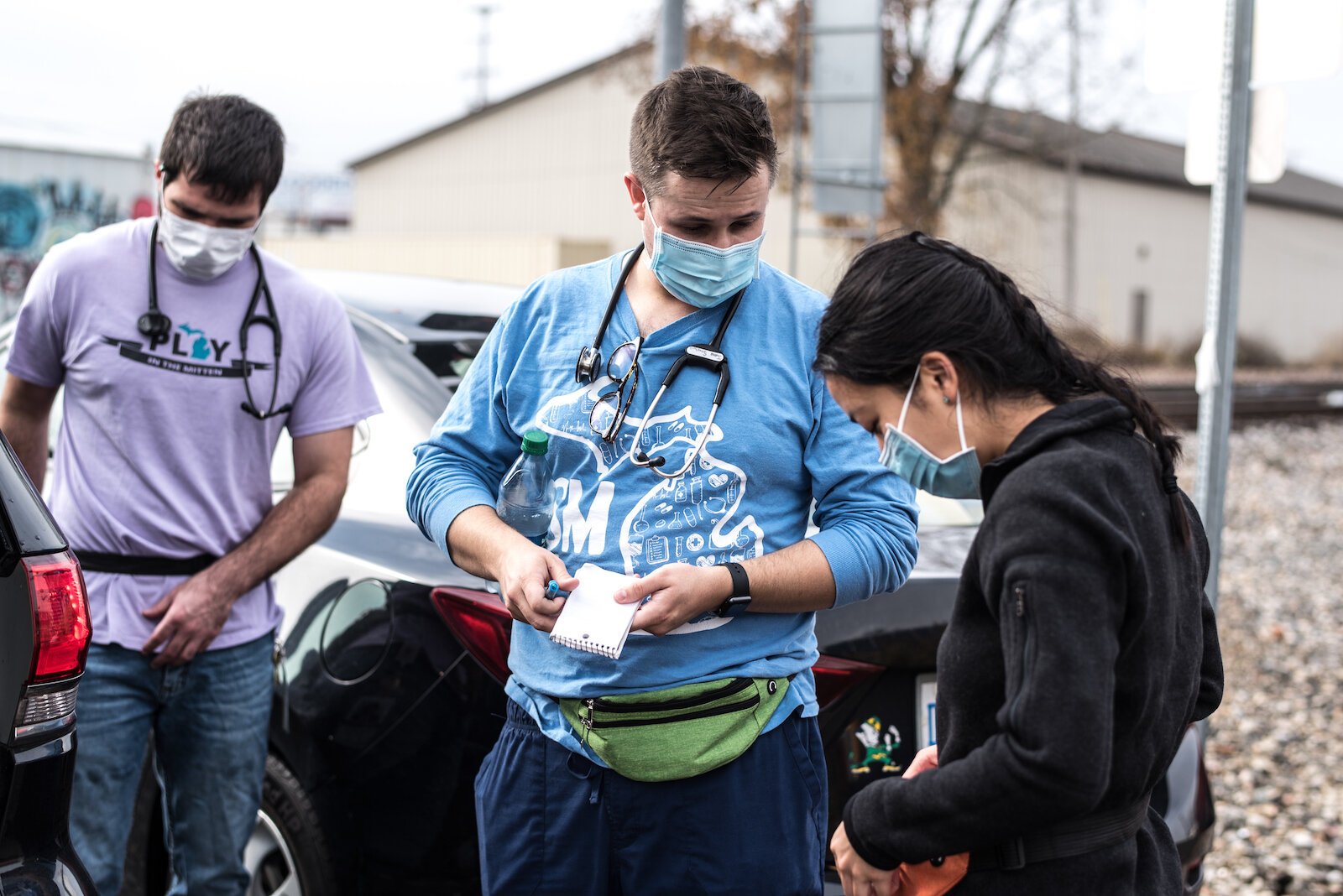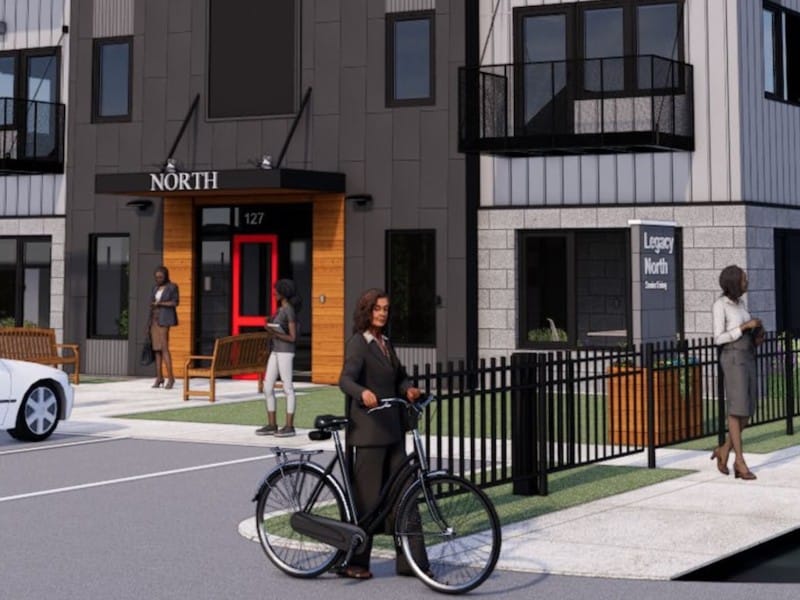Editor’s note: This story is part of Southwest Michigan Second Wave’s series on solutions to affordable housing and housing the unhoused. It is made possible by a coalition of funders including the City of Kalamazoo, Kalamazoo County, the ENNA Foundation, and LISC.
Telehealth, the 21st century’s house call, has advantages over an office visit.
But what if the patient has no house, has no home? What if the patient is an unhoused or under-housed child in need of developmental-behavioral care?
To study feasibility, and to provide care for a neglected segment of the population, Western Michigan University Homer Stryker M.D. School of Medicine is launching a pilot program to provide telehealth care to children in the City of Kalamazoo who may have no access to clinics or needed specialists.
Using a $15,000 Association of American Medical Colleges grant, WMed will work with Street Medicine Kalamazoo to reach families in need of care that only specialists can provide. As soon as the equipment is purchased, the pilot will get underway.
Home care for the houseless
Developmental-behavioral pediatrician Dr. Neelkamal Soares and family medicine physician and project principal investigator Dr. Lisa Graves say that telehealth has proven advantages in care, especially when a patient doesn’t need a physical examination.
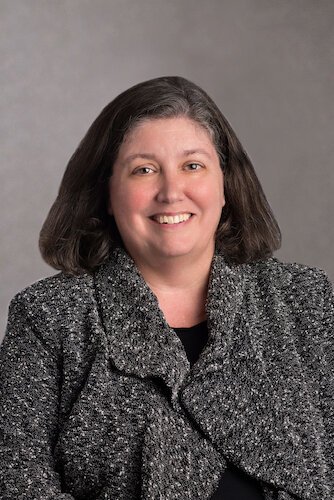
Graves says there are a few programs elsewhere in the country getting telehealth to unhoused people, but “we’re a bit innovative in focusing on developmental and behavioral, in part because, certainly, just the very fact that you’re unhoused or under-housed is likely to trigger children having behavioral challenges.”
Unhoused or not, children needing such care can be triggered by a clinical environment, they both agree.
Through telehealth, the care provider can see a patient in their home environment, with family members. The patient is likely to be in their usual mindset, and not subconsciously or consciously changing their behavior as they might in the formal setting of a clinic.
This is especially true with children and adolescents in need of developmental-behavioral care, Soares says.
“One of the advantages of doing telehealth in people’s homes, is you get a very naturalistic observation of how they behave. There’s no observer effect (like) when they come into a clinic, where maybe they’re intimidated, maybe they’re disinhibited. But when they’re at home, you get the true sense of what the family is dealing with when it comes to their behaviors.”
But what if they don’t have what we think of as homes?
“When we talk about a home environment, a home is what at the present time that child and family calls home,” Graves says.
“For some of them, they may be receiving services where the Street Medicine group is. And that, again, is very helpful, because again we get an understanding of what that space is like and how children are responding,” she says.
With Street Meds involved, there’s the opportunity to “do a three-way consultation with parents’ permission.” Medical staff in the field can help to strategize care possibilities. The Street Med team might be more aware of a “context that is very unique” to the patient, she says.
“I used to do home visits,” Graves says. “I would learn an awful lot from what they didn’t present to me in the clinic. You learn an awful lot when you see individuals in the environment that they are calling their space right now.”
Unhoused people have major barriers to in-person care at hospitals and clinics: Transportation, lack of funds, the inability to take time off from work if they’re employed, for a few.
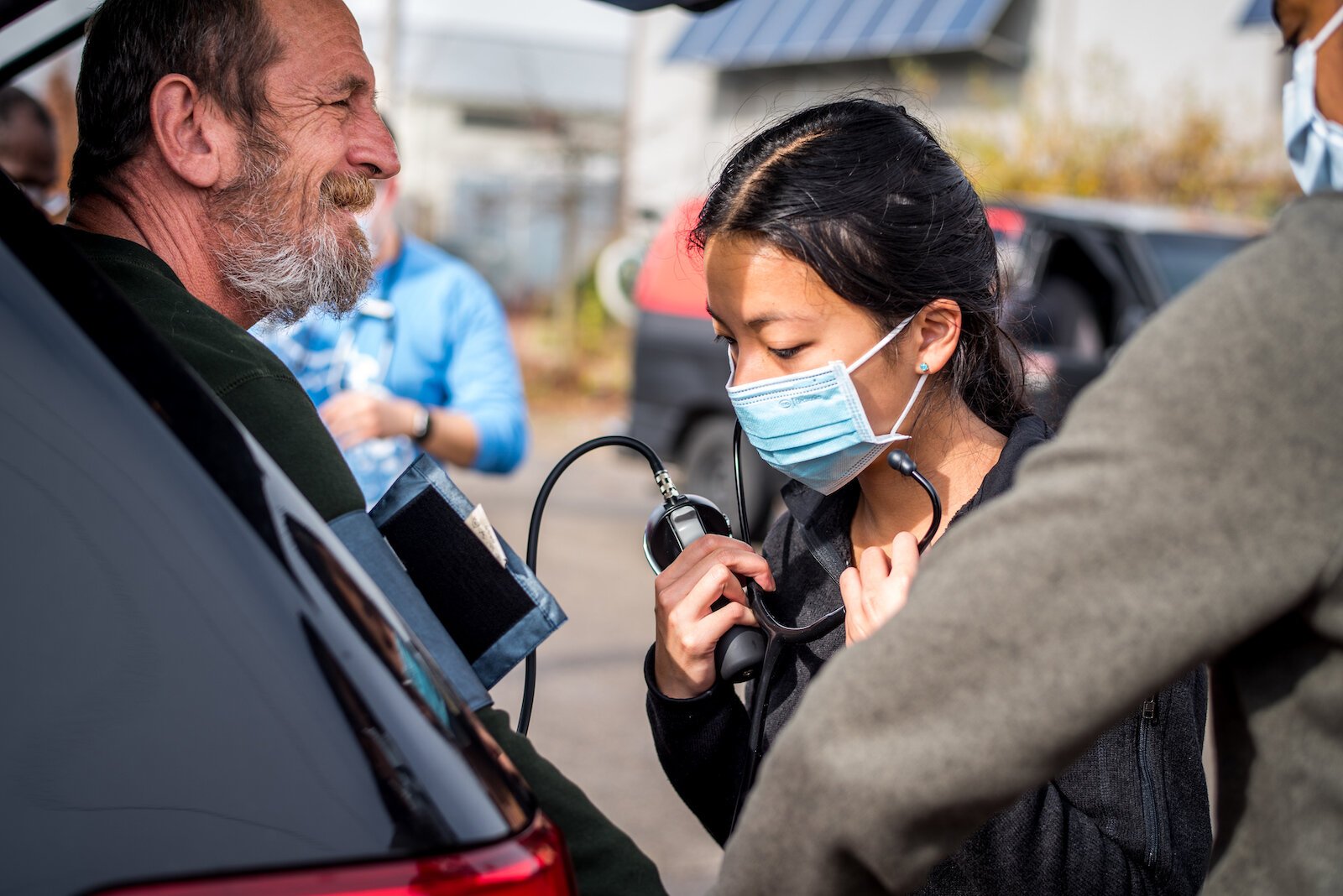
Another barrier is a fear of judgment. “Part of this is to, again, increase that accessibility, and that lack of judgment — we don’t care what your space is, we need to understand where you are right now, how you’re managing, and how we can address the issues,” Graves says.
Specialists are a rarity
Bringing a specialist to children and adolescents in need of developmental-behavioral care, if only on a screen, can be more effective than taking them to an in-person visit, Graves says.
“Dr. Soares has decades of experience in what happens when you take children who have behavior and developmental challenges, and all of a sudden put them in a brand new space, it’s either a tremendous success or it’s a huge challenge.”
Soares has been a long-time specialist in developmental-behavioral pediatrics. Since 2007, he’s been using telehealth methods.
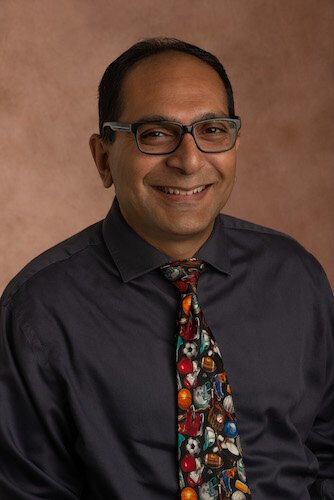
He remembers when telehealth suddenly became a huge part of his work. On March 16, 2020, “they told everyone to go home. I saw my next patient on telehealth on the 17th of March,” Soares says. “Nobody missed visits.” Thanks to the pandemic, there’s been a big increase in the use of, and developments in, telehealth.
“I have been seeing kids at great distances for a large portion of my career, this includes children who have developmental delays, learning problems in school, behavior challenges, attention deficit hyperactivity disorder, anxiety, depression, autism spectrum disorder,” he says.
For the pilot program, Soares can be on-call, available at short notice, allowing patients and Street Med caregivers to “take issues that could be big and make them in fact very small because they can be addressed very quickly and easily,” Graves says.
It’s usually a difficult task to get quick care from a doctor like Soares. As a specialist, Soares is a rarity. “There are only 770 of us” who specialize in developmental-behavioral pediatrics in the U.S. “Only 14 of us in all of Michigan, and there’s only me in all of southwest Michigan,” he says.
“Even if you were not unhoused,” getting a child to see a specialist like him would require a long waitlist.
“Around 20%-25%” of youth in need of care have developmental-behavioral issues, he says. “You have this mismatch between how common these problems are and how few of us are there.”
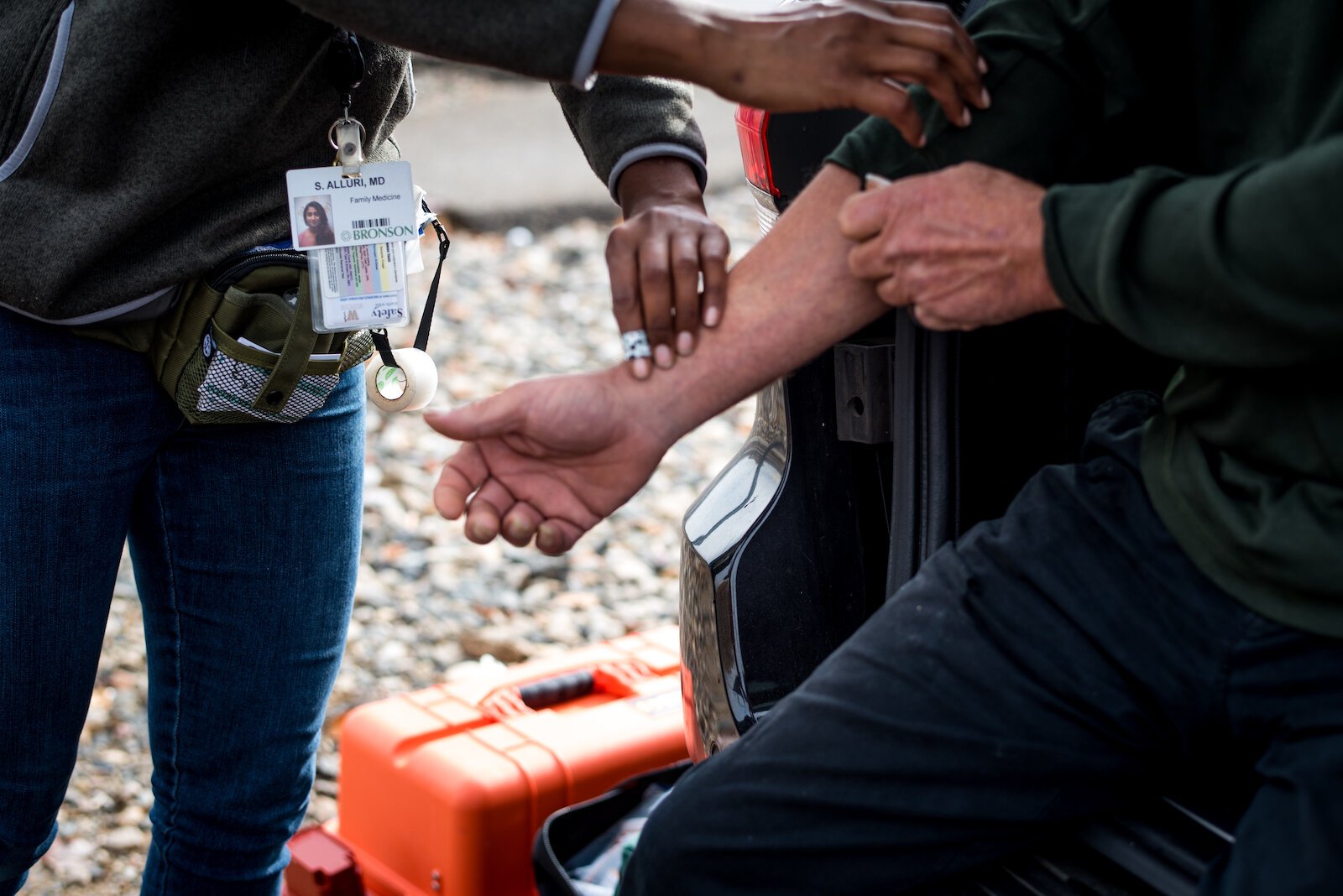
Blazing a trail
“Street Medicine is a wonderful, unique program,” with a dedicated team, Soares says.
The plan for the pilot is to get the laptops, cameras, and Wi-Fi hotspots needed to connect patients with specialists. Also, Street Meds will be passing out info on the program to unhoused patients.
The goal is to “show feasibility, make sure it’s acceptable to families, but also blaze a trail for others,” Soares says. “We don’t want this to be just a developmental-behavioral pediatric thing. Tomorrow I’d really like people with cystic fibrosis and asthma to be able to connect to their doctor… maybe diabetes or something else, because not every visit has to happen in a doctor’s office. There’s a lot of information that can be collected through technology,” he says. “We would love to see more physicians use this, particularly with our unhoused and under-housed families, because there is no reason they couldn’t.”
Graves says new telehealth techniques could be learned in the field, and passed along to other areas, such as healthcare for rural and remote populations.
“We’re making certain that this becomes something which our medical students and residents see being done, and they start to understand that this is a tool and a technique that they need to develop in order to meet the needs of the population in the next 10-20 years, well past the time that Neel and I will be retired. We want to be able to see our doctors on telehealth!” she says with a laugh.
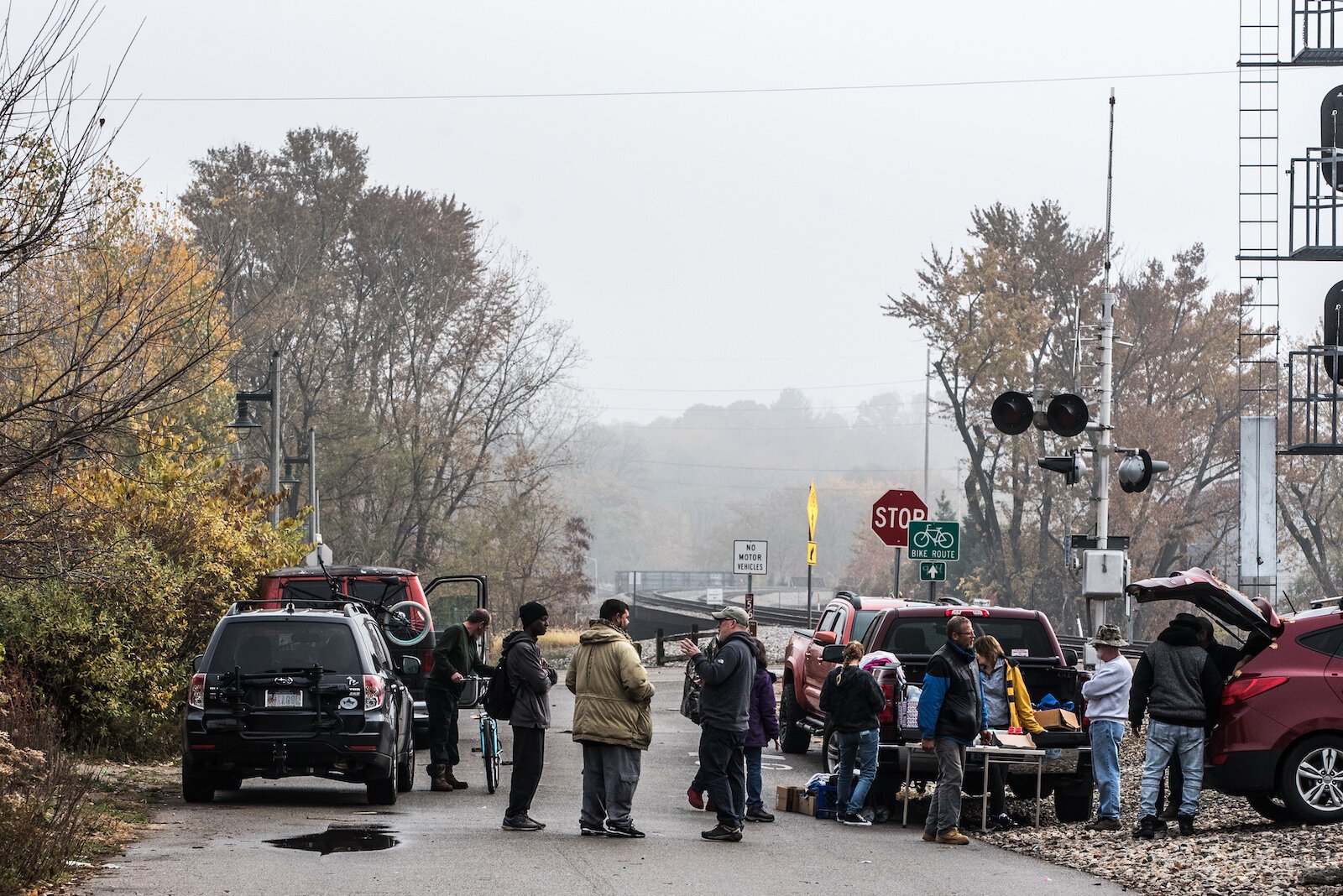
Also, she adds, “What we’re hoping that the telehealth project will do is start to build trust in the system. That talking to a developmental-behavioral pediatrician is going to be a positive experience. This is someone who gets where you’re at, who wants to meet you where you’re at and therefore can be trusted as a health care provider and a guide into the system.”
“A huge part of this is trying to make certain that by increasing accessibility and decreasing barriers and increasing equity, we’re actually starting to rebuild some of the trust that we find some of our users of street medicine don’t necessarily have in us as the medical profession.”
Graves says, “What we know is some of what we have been doing is not necessarily working for families. This is a pilot to see if we can improve that. I strongly suspect based on the literature and our experiences in other venues that this will make a difference.”
They hope to “learn the lessons of what we need to do, examine where further gaps exist in the street medicine population, and expand the program to again start to address those other gaps, to move this population ultimately to better health,” Graves says.

